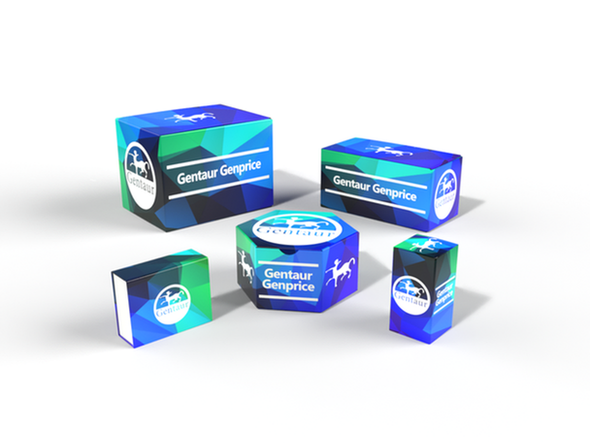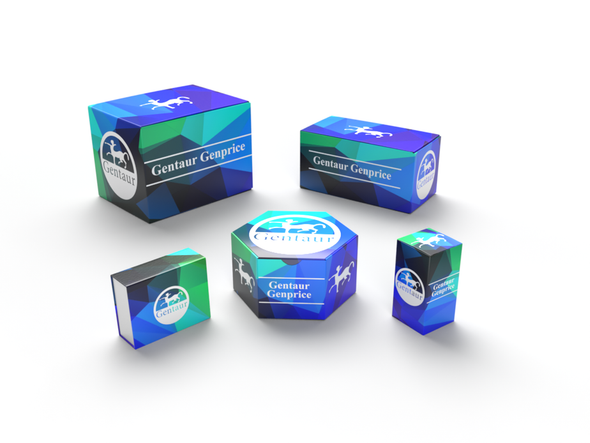740
Mouse Eosinophil cationic protein (ECP) ELISA Kit | AE63247MO
- SKU:
- 740-AE63247MO
- Availability:
- Usually ships in 5 working days
Description
Mouse Eosinophil cationic protein (ECP) ELISA Kit | AE63247MO | Gentaur UK, US & Europe Distribution
Species Reactivity: Mouse (Mus musculus)
Abbreviation: ECP
Alternative Name: N/A
Application: ELISA
Range: 0.312-20 ng/mL
Sensitivity: 0.125 ng/mL
Intra-Assay: ≤5.2%
Inter-Assay: ≤9.4%
Recovery: 0, 89
Sample Type: Serum, Plasma, Other biological fluids
Detection Method: Sandwich
Analysis Method : Quantitive
Test Principale: This assay employs a two-site sandwich ELISA to quantitate ECP in samples. An antibody specific for ECP has been pre-coated onto a microplate. Standards and samples are pipetted into the wells and anyECP present is bound by the immobilized antibody. After removing any unbound substances, a biotin-conjugated antibody specific for ECP is added to the wells. After washing, Streptavidin conjugated Horseradish Peroxidase (HRP) is added to the wells. Following a wash to remove any unbound avidin-enzyme reagent, a substrate solution is added to the wells and color develops in proportion to the amount of ECP bound in the initial step. The color development is stopped and the intensity of the color is measured.
Product Overview: Three immunization procedures were compared for the production of antibodies to the minor components of a complex E. coli protein (ECP) mixture: a conventional protocol and two methods that allow for the selective in vitro (cascade) or in vivo (passive) depletion of highly immunogenic proteins.An E. coli protein, designated ω, has been purified at least 1000-fold. Treatment of a eovalently closed DNA duplex containing negative superhelical turns with ω results in the loss of most of the superhelical turns. The loss of superhelical turns follows a gradual course rather than a one-hit mechanism. This reaction does not require a cofactor. No other change in the physical properties of the DNA could be detected. ω is capable of introducing a “swivel” reversibly into a DNA. A plausible mechanism is postulated.
Stability: The stability of ELISA kit is determined by the loss rate of activity. The loss rate of this kit is less than 5% within the expiration date under appropriate storage condition. The loss rate was determined by accelerated thermal degradation test. Keep the kit at 37°C for 4 and 7 days, and compare O.D.values of the kit kept at 37°C with that of at recommended temperature. (referring from China Biological Products Standard, which was calculated by the Arrhenius equation. For ELISA kit, 4 days storage at 37°C can be considered as 6 months at 2 - 8°C, which means 7 days at 37°C equaling 12 months at 2 - 8°C) .






